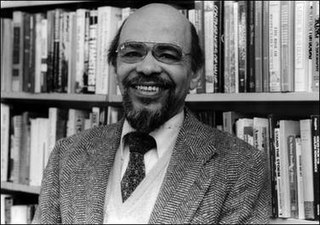A Quote by Martin Luther King, Jr.
When the Negro was completely an underdog, he needed white spokesmen. Liberals played their parts in this period exceedingly well.... But now that the Negro has rejected his role as an underdog, he has become more assertive in his search for identity and group solidarity; he wants to speak for himself.
Related Quotes
His master’s pain was his pain. And it hurt him more for his master to be sick than for him to be sick himself. When the house started burning down, that type of Negro would fight harder to put the master’s house out than the master himself would. But then you had another Negro out in the field. The house Negro was in the minority. The masses—the field Negroes were the masses. They were in the majority. When the master got sick, they prayed that he’d die. If his house caught on fire, they'd pray for a wind to come along and fan the breeze.
If I did see a white man who was willing to go to jail or throw himself in front of a car in behalf of the so-called "negro cause," the test that I'd put to him, I'd ask him, "Do you think negro, when Negroes are being attacked they should defend themselves even at the risk of having to kill the one who's attacking them?" If that white man told me, "Yes," I'd shake his hand.
What the Negro wants - and will not stop until he gets - is absolute and unqualified freedom and equality here in this land of his birth, and not in Africa or in some imaginary state. The Negro no longer will be tolerant of anything less than his due right and heritage. He is pursuing only that which he knows is honorably his. He knows that he is right.
I maintain that I have been a Negro three times--a Negro baby, a Negro girl and a Negro woman. Still, if you have received no clear cut impression of what the Negro in America is like, then you are in the same place with me. There is no The Negro here. Our lives are so diversified, internal attitudes so varied, appearances and capabilities so different, that there is no possible classification so catholic that it will cover us all, except My people! My people!
In the event of a violent revolution, we would be sorely outnumbered. And when it was all over, the Negro would face the same unchanged conditions, the same squalor and deprivation-the only difference being that his bitterness would be even more intense, his disenchantment even more abject. Thus, in purely practical as well as moral terms, the American Negro has no rational alternative to nonviolence.
Today's Uncle Tom doesn't wear a handkerchief on his head. This modern, twentieth-century Uncle Thomas now often wears a top hat. He's usually well-dressed and well-educated. He's often the personification of culture and refinement. The twentieth-century Uncle Thomas sometimes speaks with a Yale or Harvard accent. Sometimes he is known as Professor, Doctor, Judge, and Reverend, even Right Reverend Doctor. This twentieth-century Uncle Thomas is a professional Negro -by that I mean his profession is being a Negro for the white man.


































